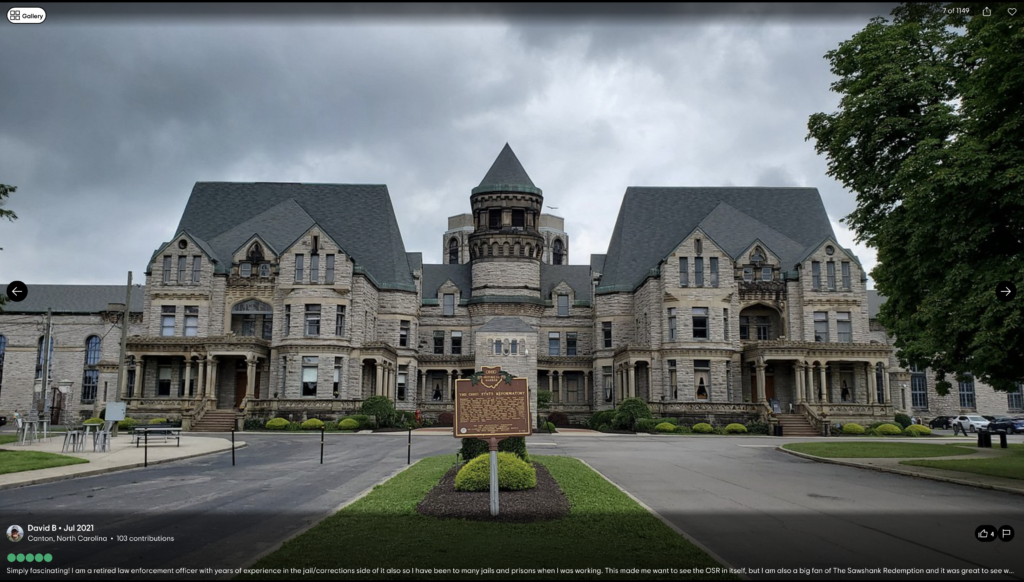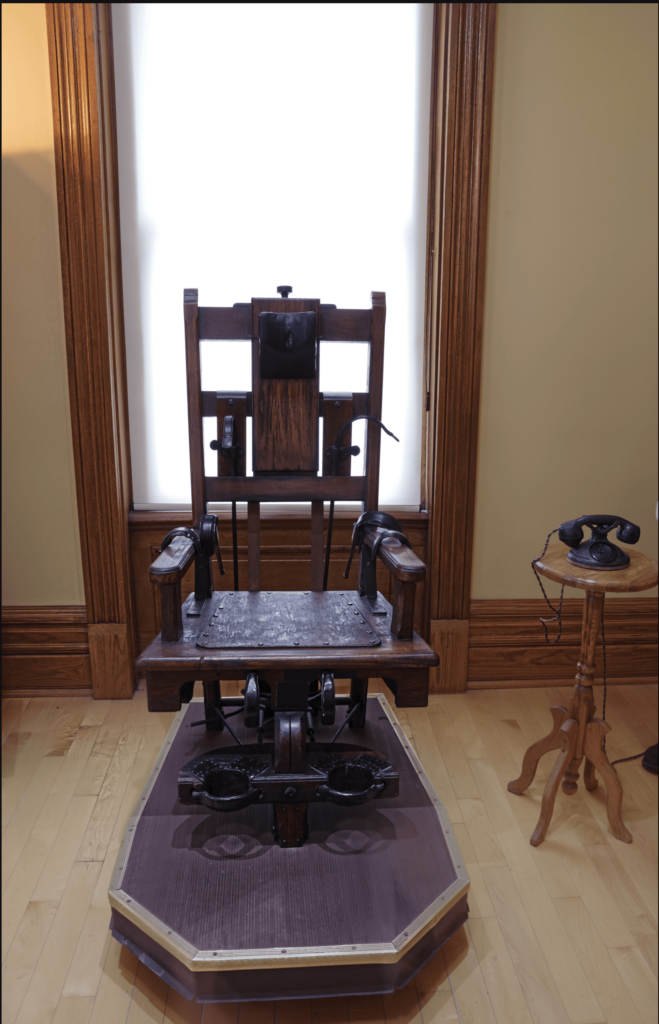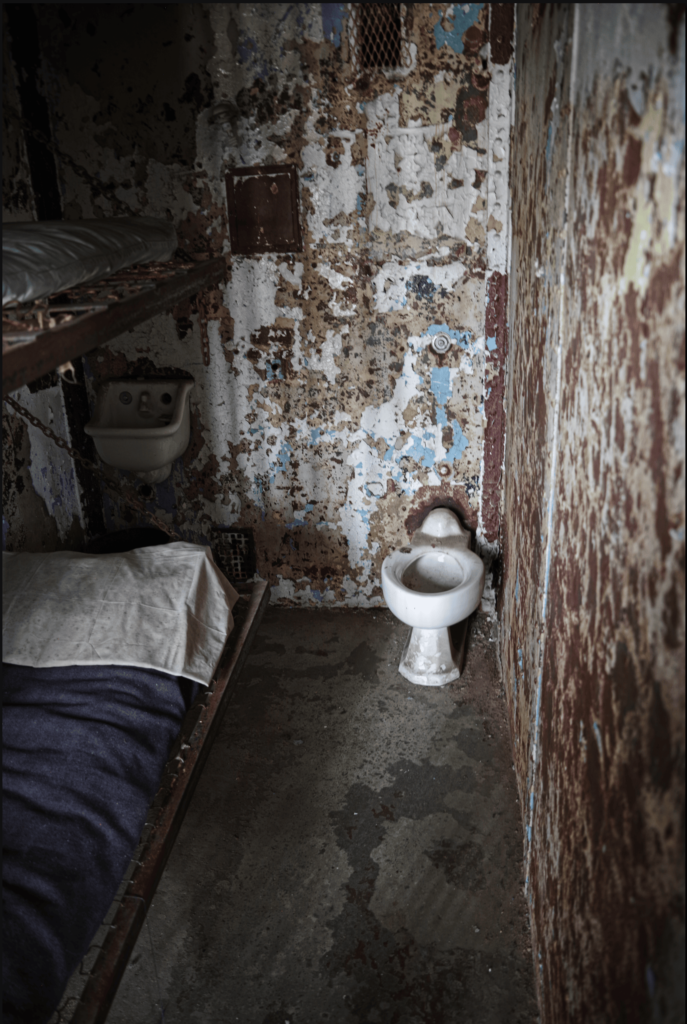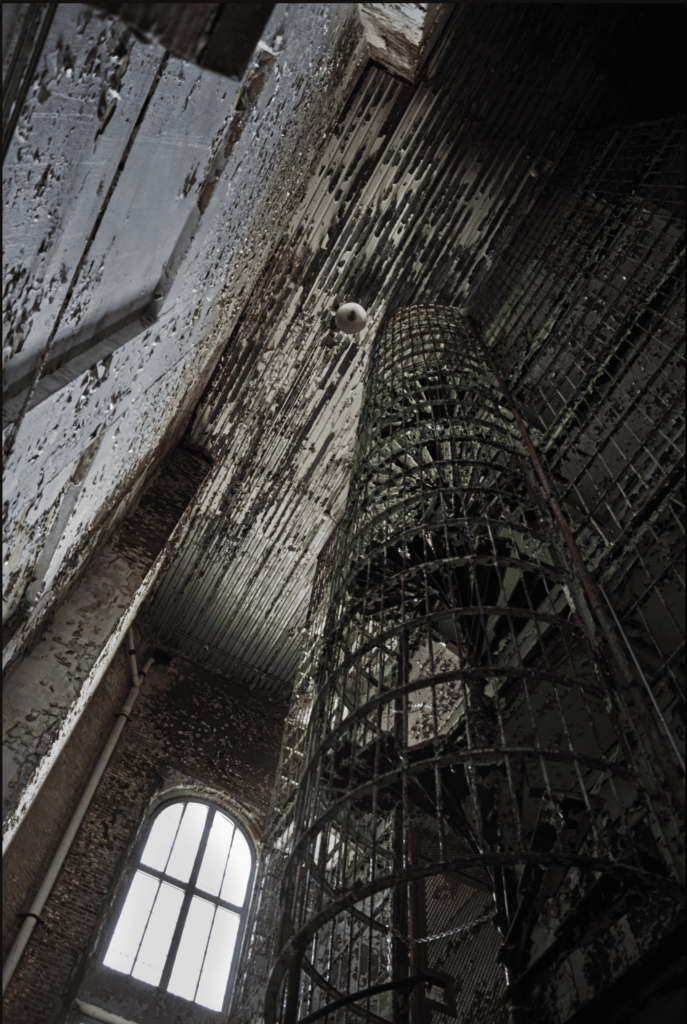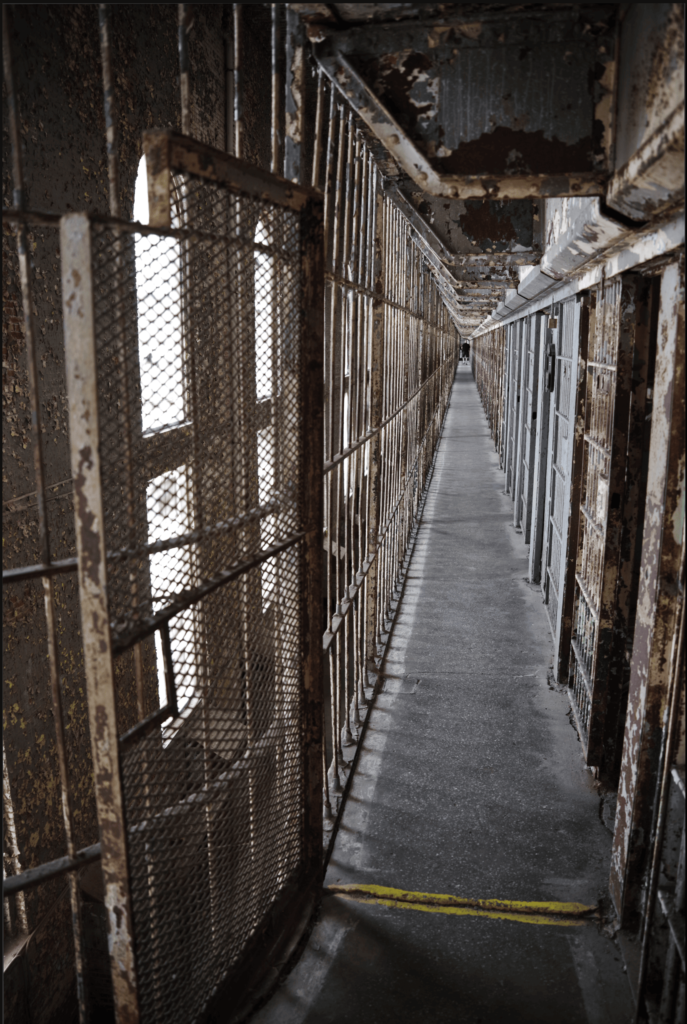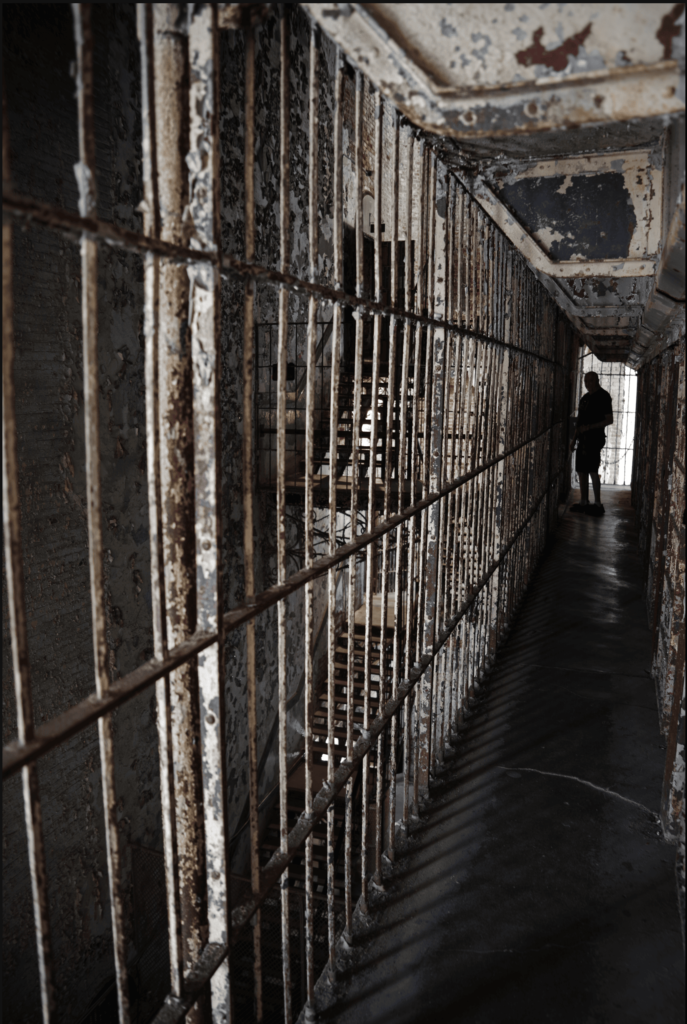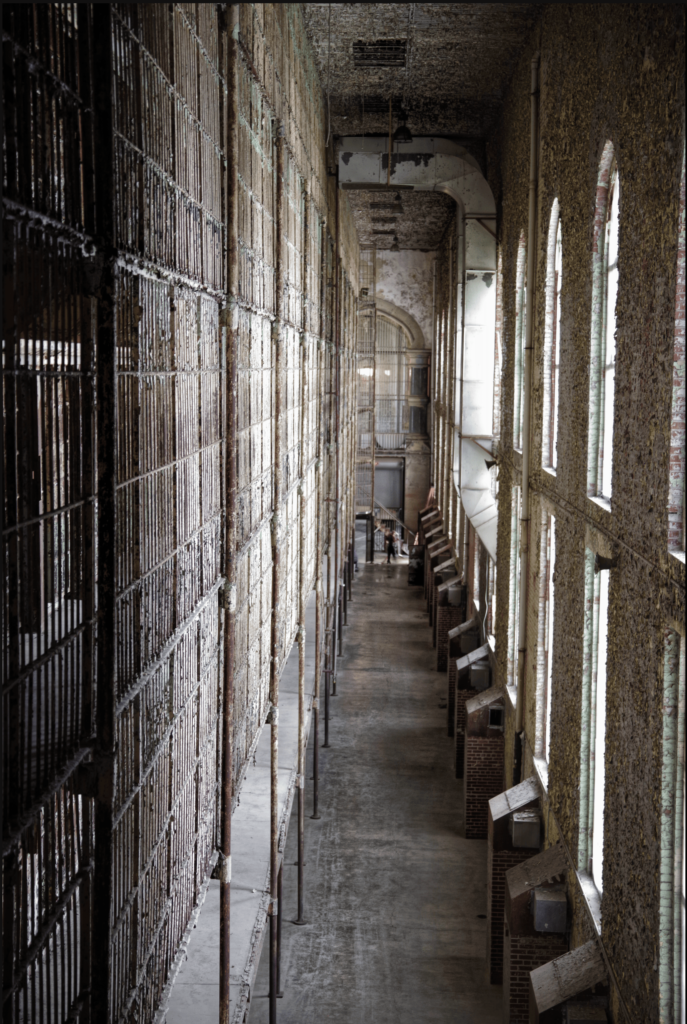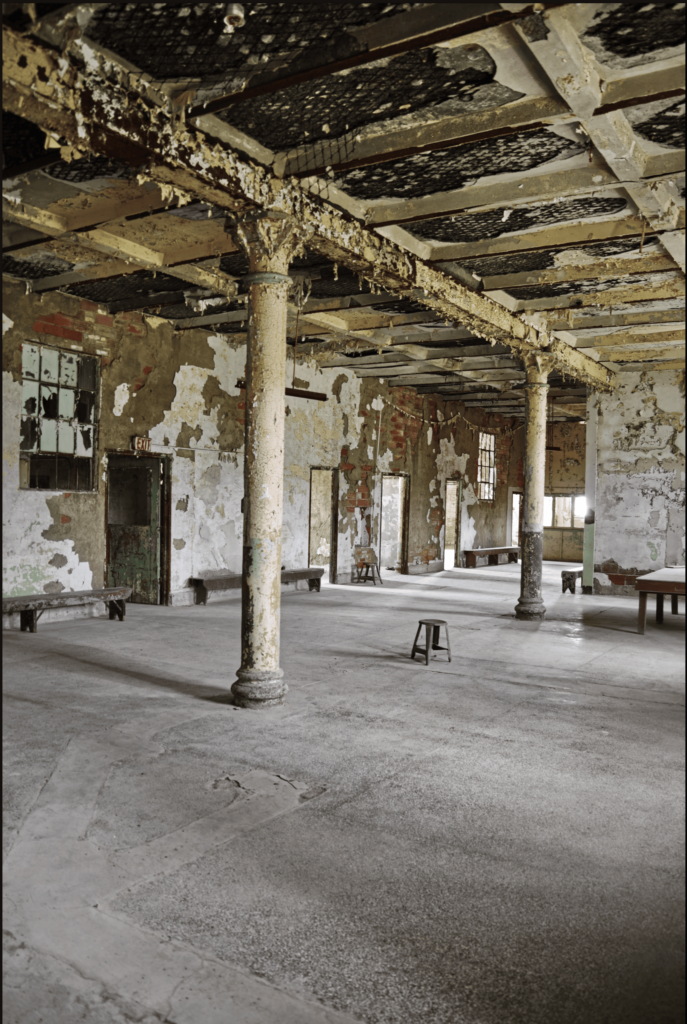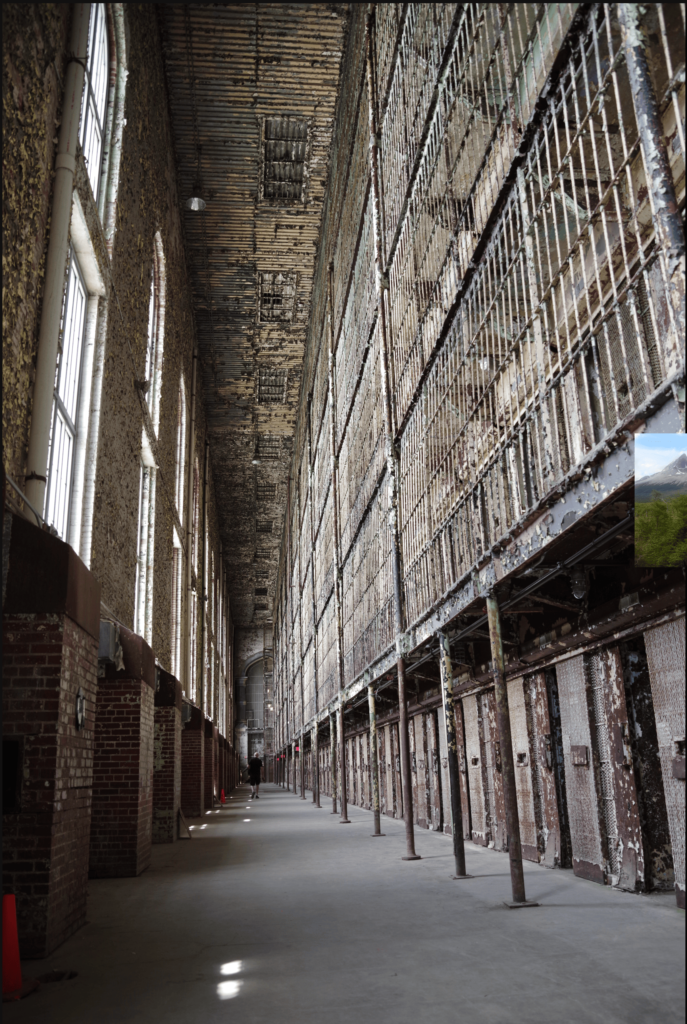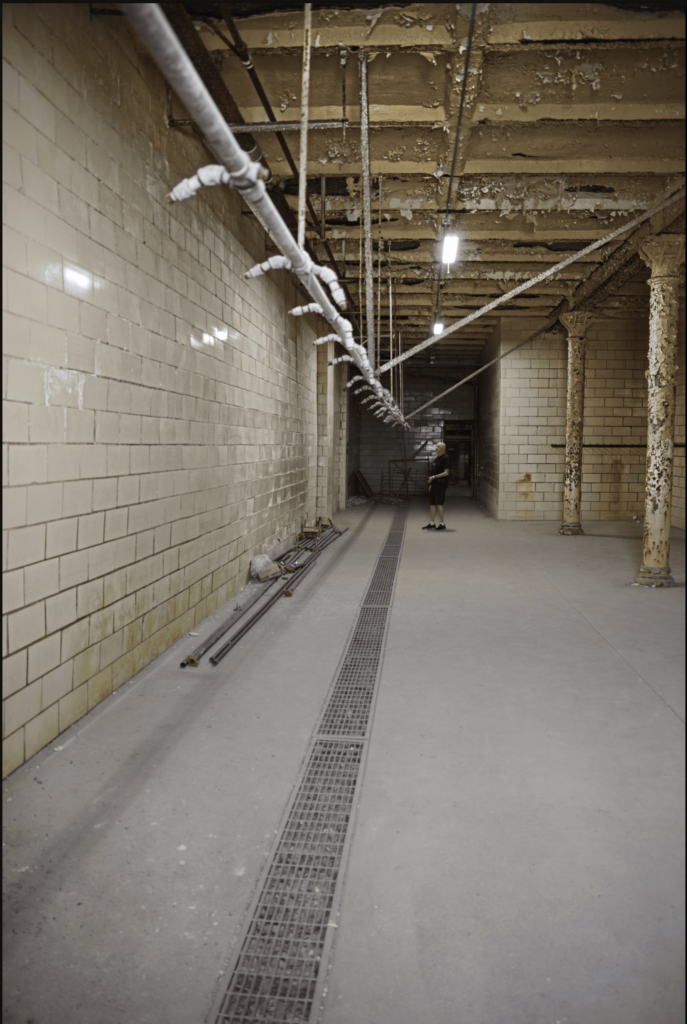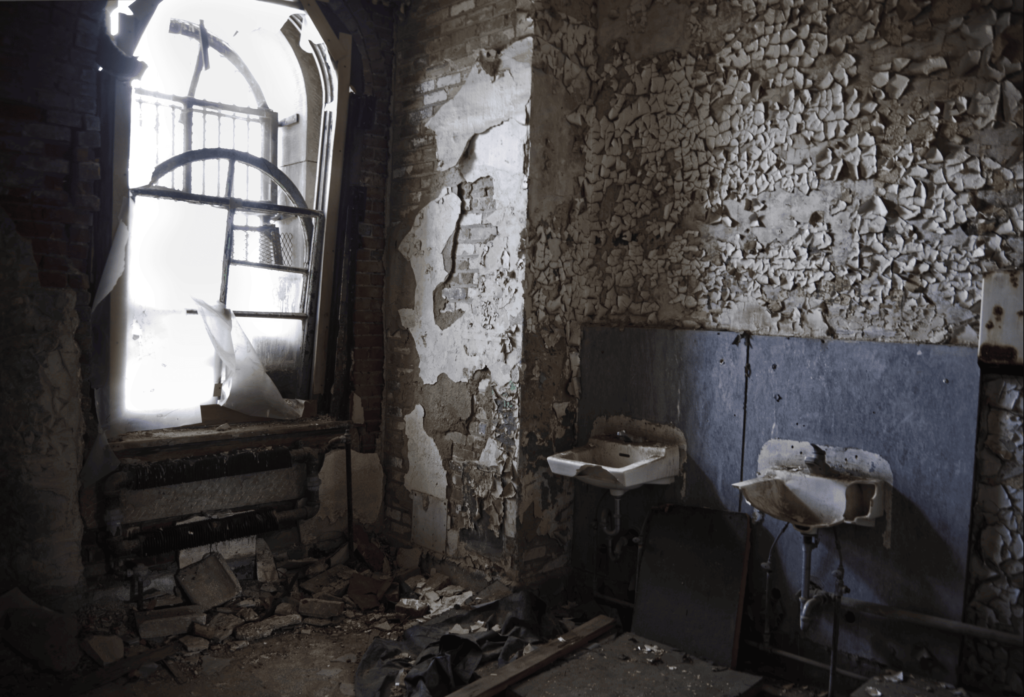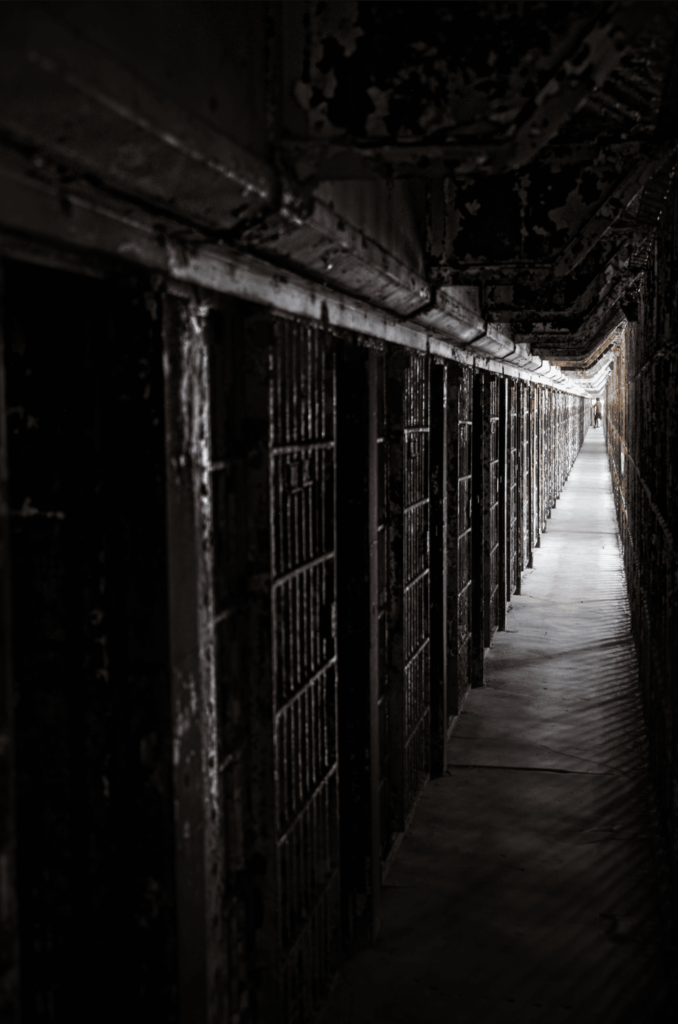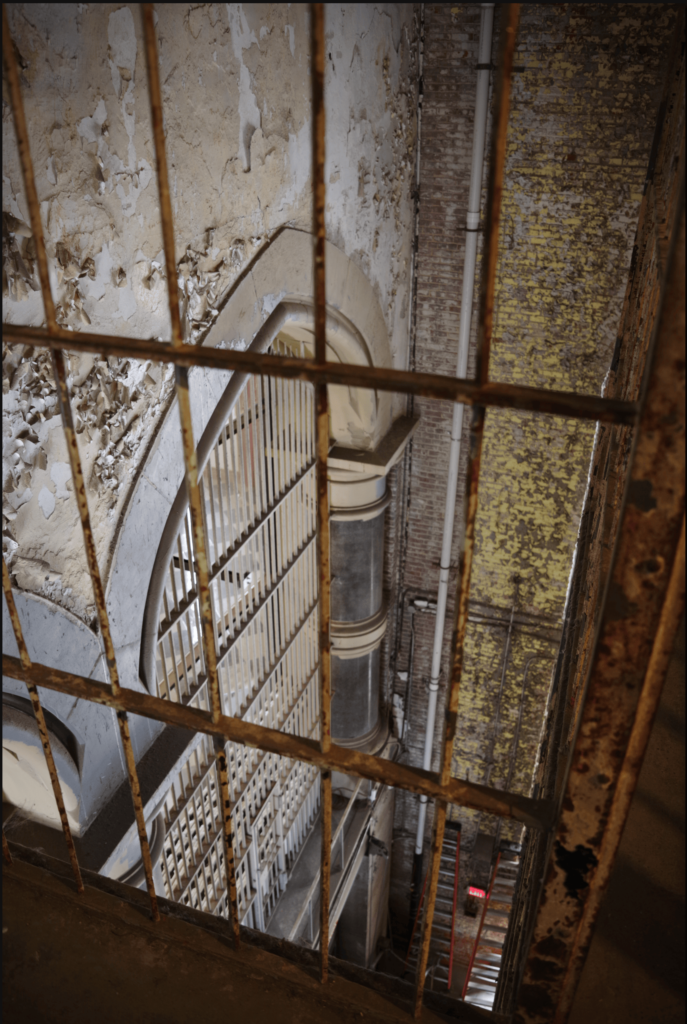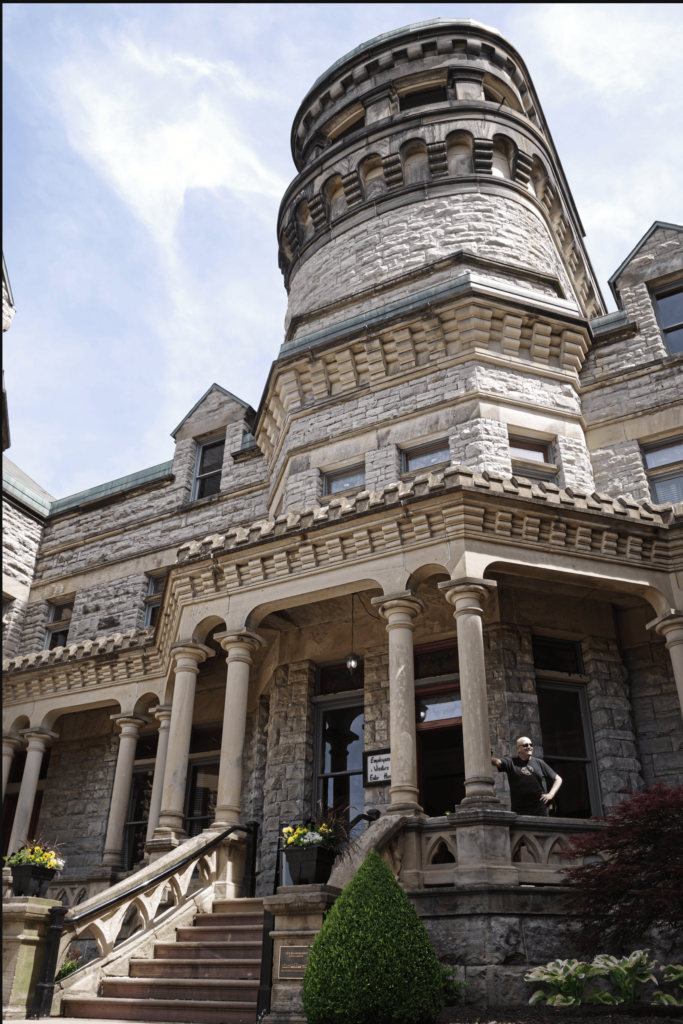The OES visited the Ohio State Reformatory on August 15, 2002. The Ohio State Reformatory (OSR), also known as Mansfield Reformatory, was built between 1886 and 1910 on the site once occupied by Civil War Camp Mordecai Bartley. Architect Levi T. Scofield designed the prison to resemble the old-world castles in Germany. The prison was to be an intermediate prison, somewhere between the Boys Industrial School in Lancaster and the Ohio Penitentiary in Columbus. It was to be used for first time offenders, not hardened criminals.
The first 150 men were transferred to the Reformatory on September 17, 1896. The prison was not quite finished at the time. Those first inmates helped construct the prison’s sewer system and build the twenty-five foot tall wall that surrounded the entire fifteen acre complex. The prison was considered to be one of the best in the country at the time it was built. But by 1933, the prison had become overcrowded and the living conditions had deteriorated. Cells intended for one person bunked two, sometimes three inmates. A lawsuit was filed in 1978 against the prison on behalf of the 2,200 inmates incarcerated there. After being tossed around in the court system for years, it was determined that the OSR was unfit to serve as a prison. The Ohio State Reformatory officially closed its doors as a correctional institution in 1990.
Even though the Reformatory was an intermediate prison, it had its fair share of death and violence. Two corrections officers were killed in the line of duty on prison grounds. On November 2, 1926, a paroled inmate returned to the prison and shot 72-year-old prison guard Urban Wilford in an unsuccessful escape attempt. The murderer, Philip Orleck, was arrested two months later and was executed in the Ohio Penitentiary electric chair a year later. A 48-year-old prison guard named Frank Hanger was beaten to death with an iron bar during an escape attempt by twelve prisoners on October 2, 1932. Two of the inmates, Merrill Chandler and Chester Probaski, were found guilty of the guard’s murder and both were executed in the electric chair in 1935.
July 21, 1948, was a dark day in the Reformatory’s history. Two former inmates, John West and Robert Daniels, kidnapped the prison’s farm superintendent, his wife and their 20-year-old daughter from their home on the honor farm. The pair then murdered the entire family in a cornfield off Fleming Falls Road. West and Daniels, known as the “mad-dogs,” went on a two week crime spree, leaving six people dead. They were later found near Van Wert, where a shootout resulted in the death of West and Daniels’ capture. Daniels was later executed in the electric chair. In November 1950, the warden’s wife was reaching into a closet looking for her jewelry box. When she removed the box, her hidden pistol fell to the ground, discharged and fatally wounded her. The warden died from a heart attack while in his office a few years later. In the area known as “the hole,” or solitary confinement, two men were once placed into the same cell. Only one emerged alive, the other had been killed and stuffed under the bunk. A man hanged himself in the hole and another set himself on fire. Many other prisoners died behind OSR’s large stone walls, some from disease, others from violence and some by their own hand. The prison’s cemetery just beyond where the walls stood contains over 200 prisoners who perished while incarcerated.
The prison is said to be extremely haunted, both by the many inmates who served their time there and by employees who worked there. The prison has been featured on several paranormal-related television shows, including World’s Scariest Places. The magnificent architecture of the Reformatory has been noticed by Hollywood and the building has appeared in several movies. Filming for Harry and Walter Go To New York took place there in 1975 and in 1988, filming took place for Tango and Cash. The prison was still in operation in each of those movies. OSR’s most well-known film, Shawshank Redemption, was shot in 1993. It is interesting to note that Shawshank Redemption did not use OSR’s cell blocks in the film, all of those scenes were shot elsewhere. Filming for Air Force One took place in 1996 and included the construction of a faux prison wall and some other props. The band “Godsmack” filmed their Awake music video at the prison in 2000.
Soon after the filming of Shawshank Redemption, the state demolished all of the outbuildings and the prison wall. Being on valuable property, the State of Ohio wanted to use the land to expand the new Mansfield Correctional Institute located just beyond the old reformatory. Luckily, the land was turned over to a preservation group in 1995 that now controls the old prison. The OSR’s six tier free-standing cell block still holds the record for the largest free-standing steel cell block in the world. Tours are available at the site and a haunted attraction is hosted every Halloween season. Check out the OSR Preservation Society’s website by clicking here.
